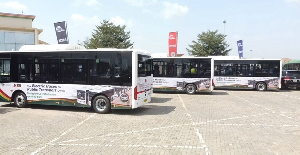Dwindling and irregular budgetary allocation to the Tamale Central Prison is hampering the work of officials, Mr Robert Abundant Awolugutu, Northern Regional Commander of the Service, has said.
He said the Ghana Prison Service was a major player in the criminal justice system with the mandate to protect the public through safe custody of inmates, their rehabilitation and reformation as well as to give them quality care and that budgetary allocation to the Tamale Central Prison was not forthcoming.
The Commander expressed this concern at a stakeholders’ meeting in Tamalewhich brought together philanthropists and representatives of religious bodies to discuss how challenges facing the Service could be addressed.
He said clients who supplied food stuffs to the facility had stopped due to the huge debt while some hospitals in the Tamale Metropolis had also refused to attend to prisoners due to the unpaid expenses.
Mr Awolugutu said the facility had only one vehicle which served the Commander as well as all the 200 inmates anytime they are to be taken to the hospital.
“Aside the vehicle, there is a perennial water shortage in the yard because the taps hardly flow and the only water tanker serving the facility has broken down and we need about GH?17, 000 to fix it,” he said.
Mr Awolugutu said every prisoner had an offending behavior that needed a particular programme to ensure positive change but due to lack of resources the facility was unable to carry out that mandate of reformation and rehabilitation.
“We have a tall list of strategic programmes that can correct criminal behaviour such as sexual offences, narcotics and anger management but we are unable to implement the initiatives. The existing reformation programmes like tailoring, weaving and basketry are not doing well and needs financial support to revamp them”, he said.
The Commander said many of the inmates had great skills, which needed to be explored to generate income.
“Some of the inmates are young and need to be educated formally to develop their potentials but they can’t assess teaching and learning services”, he said.
Mr Awolugutu expressed his outfit’s preparedness to partner organisations, philanthropists and civil societies to explore the many planned initiatives to equip inmates with skills in farming, barbering, washing bay, shoe making and rabbit rearing to enable them earn a living after their release.
He said many prisoners suffered social exclusion after serving their jail terms, which compelled some of them to be committing perpetual crimes so as to remain in the prison.
Some of the stakeholders suggested the need for establishing a discharge fund to support those who had been released from prison to enable them start a business.
Currently, the prison’s regulation only supports freed inmates with transportation allowance to their community.
Regional News of Tuesday, 12 August 2014
Source: GNA

















